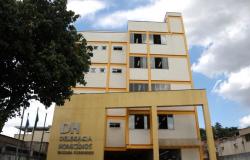Changes would have the potential to generate additional revenue of R$2.5 billion per year to the public coffers of Rio Grande do Sul
The Federation of Industries of the State of Rio Grande do Sul (Fiergs) sent a document to the state government and the president of the Legislative Assembly, deputy Adolfo Brito, demonstrating that the effective ICMS rates on fuels already exceed the limits established in Complementary Laws 192 and 194 In this way, it is possible that the current ICMS collection is already compensating for the losses predicted by the Finance Department. Thus, there are alternatives that make cutting tax incentives unnecessary. The entity demonstrates in the text that the changes promoted in the fuel taxation model, implemented in May 2023 (from “ad valorem” to “ad rem”), increased the effective ICMS rates to 24% on gasoline (compared to 17% previously ) and 18% in diesel (compared to 12% previously).
With due reservations about the market structure and some other factors that influence the price fluctuations of these two items, the entity estimates that these changes would have the potential to generate additional revenue of R$2.5 billion per year to the public coffers of the Rio Grande do Sul. The reintegration of Tariffs for the Use of Transmission and Distribution Systems (TUST and TUSD) into the ICMS calculation base in May 2023 was a crucial factor in the increase in tax collection. These tariffs account for a large part of the energy ICMS. Its reinstatement expanded the state tax calculation base, resulting in a significant increase in revenue.
There is also the expectation that the grain harvest in 2024, which should exceed 40 million tons, around 45.7% greater than the previous year, could positively impact ICMS collection, even though the direct participation of sector in ICMS is low. The larger harvest is directly linked to the demand for agricultural inputs and investments in machinery and equipment for productivity gains. Furthermore, the income generated not only benefits producers, but also creates jobs in the harvest, increasing family income and contributing to trade in various segments, boosting tax revenue.
In the document, the Federation also presents a series of alternative measures to increase ICMS collection and maintain the competitiveness of companies. The first of these is the creation of a Technical Chamber for the Assessment of Tax Incentives designed to understand, study, evaluate and propose measures. The second is the creation of a “Refaz” to enable the regularization of companies that still live with the specter of economic crises, reestablishing the status of compliant taxpayer. Programs are also suggested for offsetting debts of a tax or other nature, registered in active debt and for tax transactions in the manner already established by the Union. “In addition to the growth in state revenue due to fuel, energy and the promising grain harvest , there are more alternatives that, as a whole, can replace the simple cut in incentives, which in fact are just tax compensations to maintain our competitiveness in the markets”, reiterated the president of Fiergs, Gilberto Petry, in a note.
Tags: Collection ICMS fuel energy compensate RSs revenue losses






